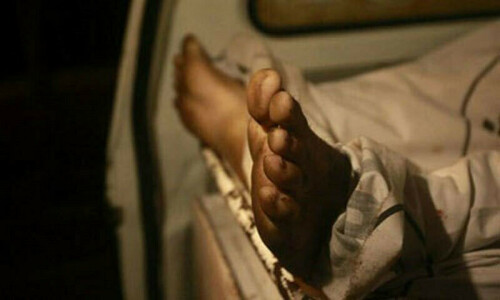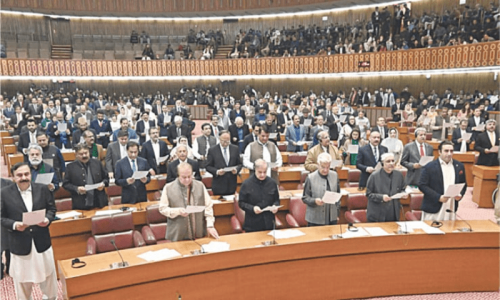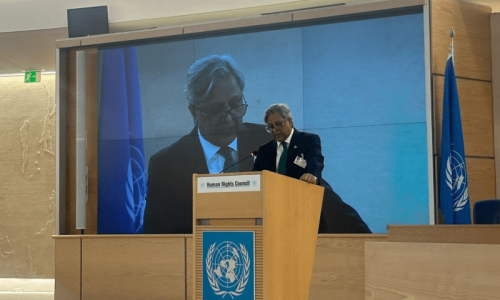
ZURICH: Traces of the poisonous element polonium have been found in the belongings of late Palestinian President Yasser Arafat, a Swiss institute said on Wednesday, and a television report said his widow had demanded his body be exhumed for further tests.
Arafat died at a hospital in France in 2004, after a sudden illness which baffled doctors. Many Palestinians have long suspected he was poisoned.
Darcy Christen, spokesman for the Institut de Radiophysique in Lausanne, Switzerland, told Reuters on Tuesday it had found “surprisingly” high levels of polonium-210 in Arafat's belongings.
But he stressed that clinical symptoms described in Arafat's medical reports were not consistent with polonium-210 and that conclusions could not be drawn as to whether the Palestinian leader was poisoned or not.
The Qatar-based Al Jazeera satellite channel said the institute had tested Arafat's personal effects, given them by his widow.
Its documentary said they showed that his clothes, toothbrush and kaffiyeh headscarf contained abnormal levels of polonium, a rare, highly radioactive element.
“I can confirm to you that we measured an unexplained, elevated amount of unsupported polonium-210 in the belongings of Mr. Arafat that contained stains of biological fluids,” Francois Bochud, director of the institute, said in the documentary.
Bochud said the only way to confirm the findings would be to exhume Arafat's body to test it for polonium-210.
“But we have to do it quite fast because polonium is decaying, so if we wait too long, for sure, any possible proof will disappear,” he told Al Jazeera.
Polonium was found to have caused the death of former Russian spy Alexander Litvinenko in London in 2006, and he was assumed to have been deliberately poisoned.
Arafat's widow Suha said she would ask for Arafat's body — buried in the West Bank town of Ramallah, seat of the Palestinian self-rule authority — to be exhumed.
Speaking at the end of the documentary, aired on Al Jazeera's English and Arabic channels, she said: “We have to go further and exhume Yasser Arafat's body to reveal the truth to all the Muslim and Arab world.”
Arafat led the Palestinian Liberation Organisation's fight against Israel from the 1960s but signed a peace agreement with the Jewish state in 1993 establishing Palestinian self-rule areas in the West Bank and Gaza Strip.
His mysterious death came four years into a Palestinian uprising, after years of talks with Israel failed to lead to a Palestinian state. French doctors who treated Arafat in his final days could not establish the cause of death.
French officials refused to give details of his condition, citing privacy laws, fuelling a host of rumours and theories over the nature of his illness.
















































